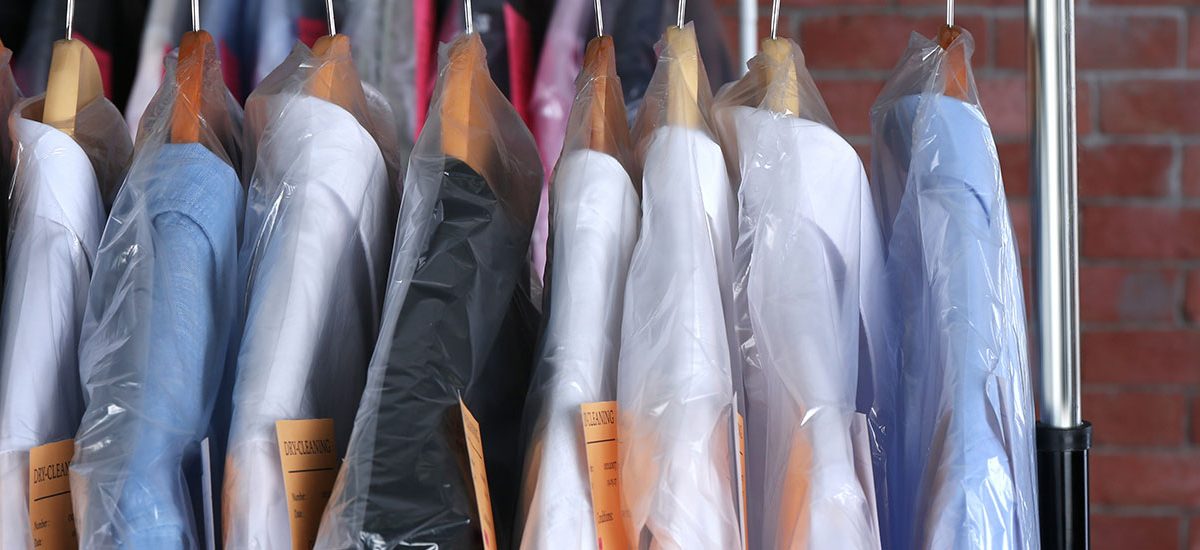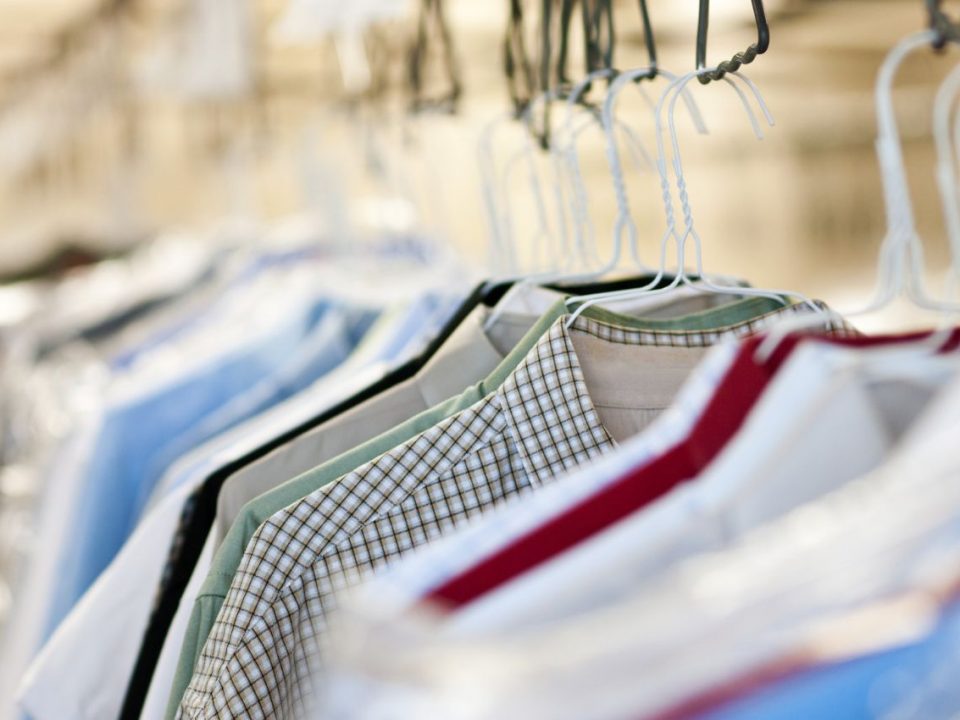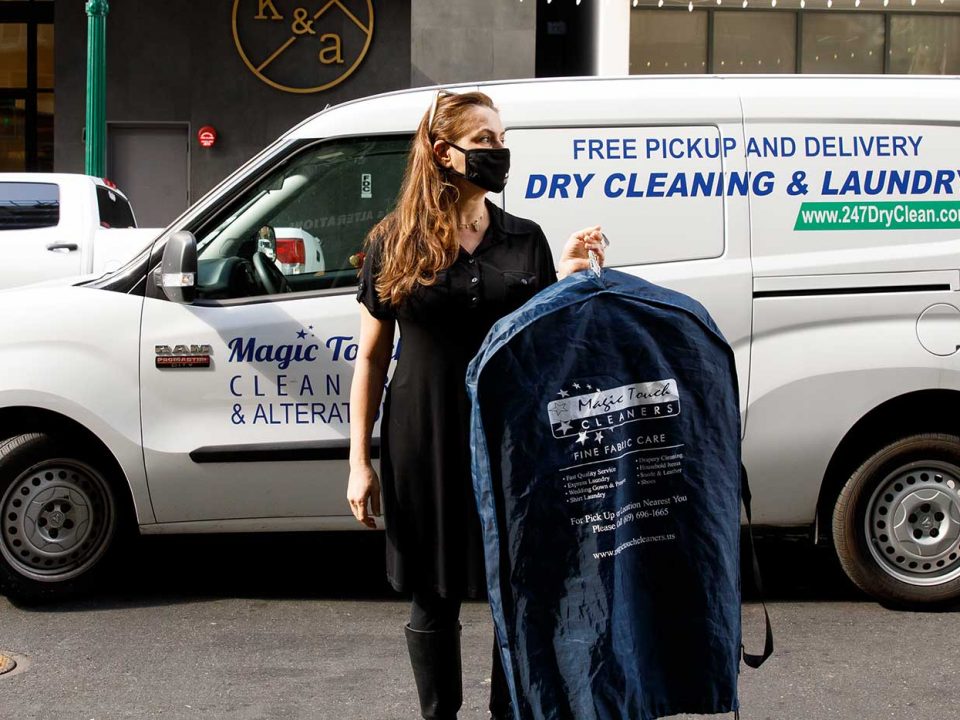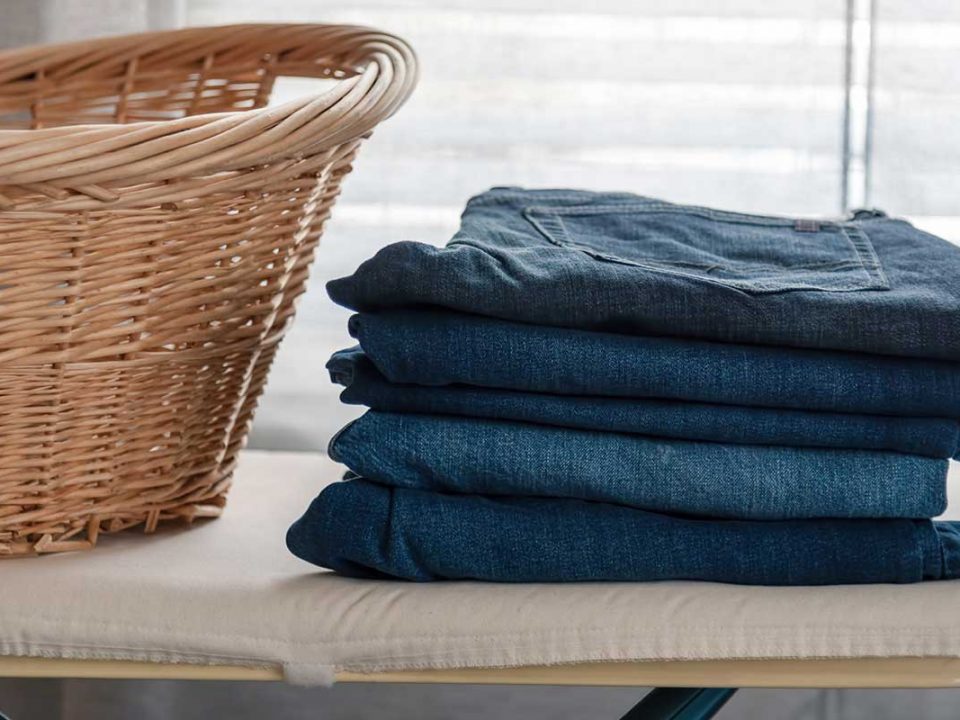
What is Dry Cleaning, and Why Do I Need It?
September 8, 2019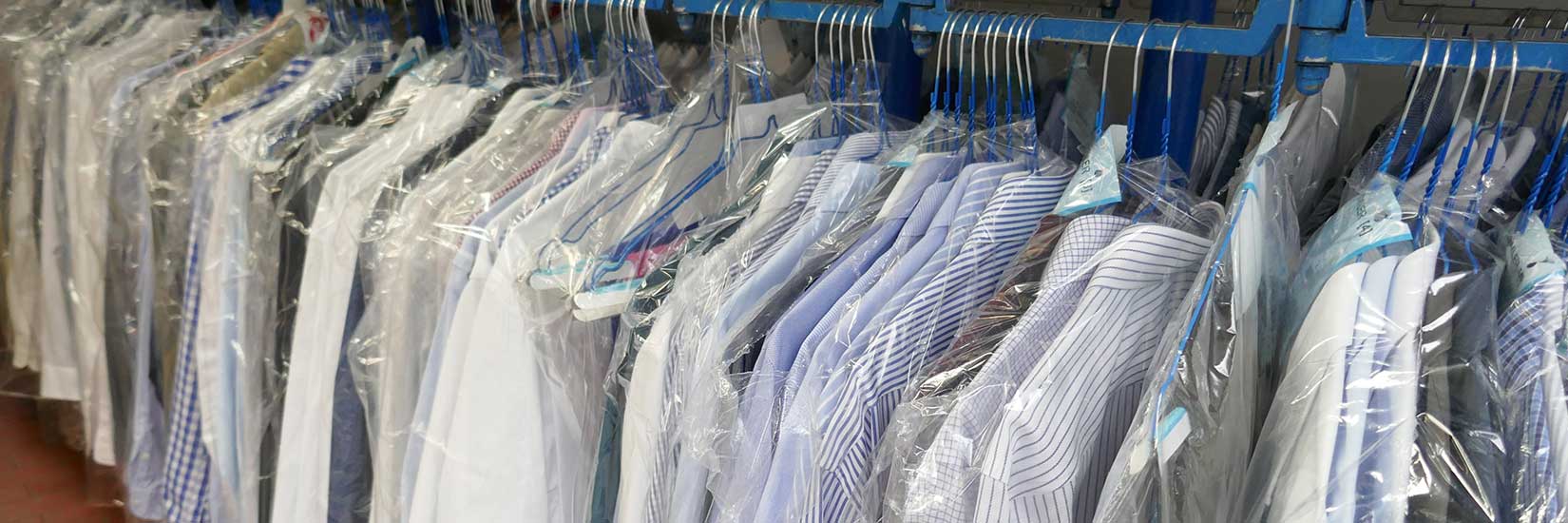
Launder and Press versus Dry Cleaning
December 10, 2019How Often Do You Need to Get Your Clothes and Household Essentials Dry Cleaned?
Let’s start with the good news. You don’t need to get your clothing professionally dry cleaned after each wear. Unless soiled or wrinkled, most wardrobe essentials can last a few wears even if it says ‘dry clean only’. Coats, jackets, and bedding can even go months without needing dry cleaning. However, each individual piece is different, so it’s important to know when to dry clean in order to keep your clothing and linens looking and smelling as fresh as possible for as long as possible. We’ve done the hard work for you and compiled a guide on when to call or text your local dry cleaner for pick-up (yes… some dry cleaners offer free pick up and delivery).
Every 1-2 Wears (Shirts, Blouses, Evening Wear, Formal Dresses, Formal Suits)
Button-down shirts and blouses, especially those made from delicate fabrics such as cashmere and silk, generally have a tighter fit and absorb sweat. It’s a good idea to have these items regularly dry cleaned and pressed to ensure freshness and longevity, so you can continue to look sharp every time you wear them. In addition, something worn just for special occasions, like a formal suit or an evening gown, may need to be cleaned after each wear due to their fragile material.
- Shirts
- Blouses
- Evening Wear
- Formal Dresses
- Formal Suits
Pro tip: Layer a cotton cami, shirt, or a slip underneath your tops, blouses, dresses and suits to act as a barrier to perspiration. This will extend the time between cleanings. Just make sure to toss those layers in the wash after each wear
Every 3-5 Wears (Skirts, Sweaters, Business Suits, Pants, Everyday Dresses)
If your clothing is made of stain-repellent and/or wrinkle-free material, then you can likely wear each item a few times before needing to send them to the dry cleaner. Even clothing made from wool can be worn more often before requiring a cleaning.The same goes for clothing that doesn’t come into direct contact with your skin, like business suits.
- Skirts
- Sweaters
- Business Suits
- Pants
- Everyday Dresses
Pro tip: Instead of hanging your sweaters and pants, roll or fold them to avoid wrinkling. And when retiring your winter wardrobe during the warmer months, try folding or rolling them in airtight bins. This will prevent them from absorbing any odors, like musk, smoke, or dust.
Every Season (Outdoor Jackets and Coats)
Again, clothing that doesn’t come into direct contact with your skin doesn’t need to be cleaned as often.
- Frequently worn Outdoor Jackets and Coats
Pro tip: Make sure to recycle the wire hangers that come with your clothing or household essentials when returned from your dry cleaner. The edges can cause wrinkles and shoulder dimples in delicate fabrics. Velvet hangers or curved fabric is ideal for blouses, while heavy outerwear does best on sturdy wooden hangers.
Every 6 Months (Comforters, Throw Pillows, Duvet Covers, Bed Spreads)
Since these items do not come into direct contact with skin, they don’t need to be cleaned as often as your sheets. However, cleaning them when necessary ensures they last as long as possible and look great.
- Comforters
- Throw Pillows
- Duvet Covers
- Bed Spreads
Pro tip: Although it may seem counterintuitive, make sure to remove the plastic bag your freshly dry cleaned clothing or household essentials were picked-up or delivered in. Often times there is moisture that remains from the steaming process which can get trapped within the plastic and foster mildew.
Every Year (Curtains)
Annually cleaning your curtains will not just remove the dust that they have collected, but it will have them looking like new.
- Curtains
Professional dry cleaning increases the lifespan of your clothing, and other household items, ensuring you’ll get the most use and wear out of your favorite pieces.
Author: Christina P. Kantzavelos

